Art Fairs
Tate’s Frieze Fund Purchases This Year Were All About ‘Greater Diversity and Inclusion’—See Them Here
The museum picked up work by artists Sonia Boyce, Claudette Johnson, Johanna Unzueta, and Giorgio Griffa.
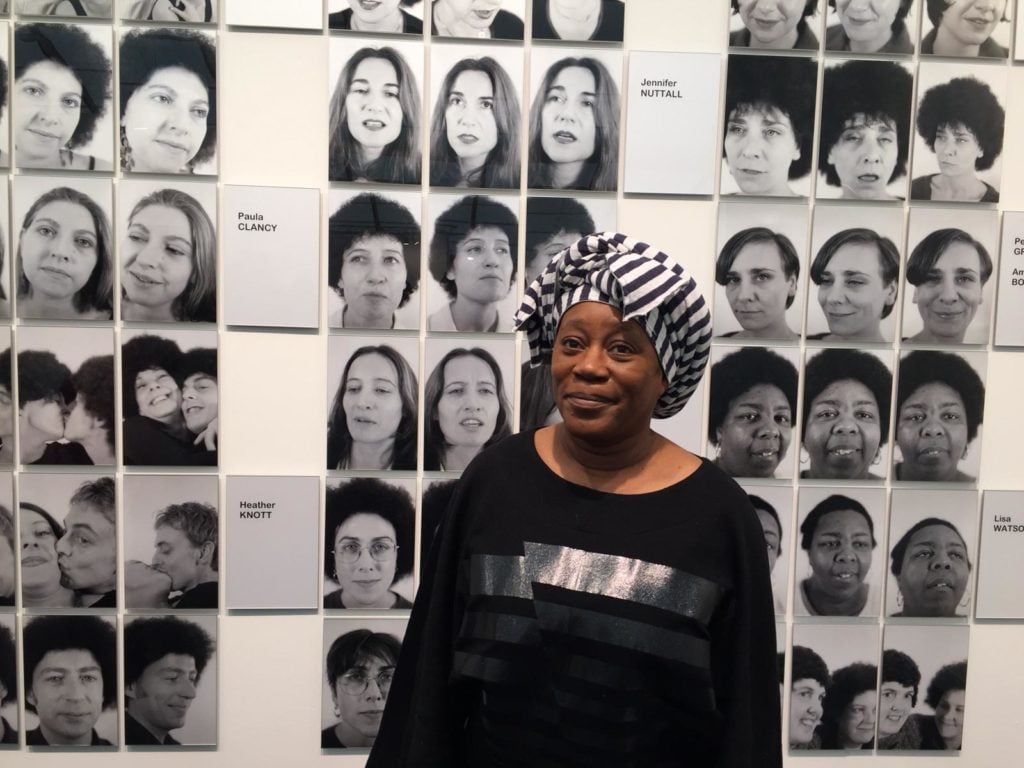
The museum picked up work by artists Sonia Boyce, Claudette Johnson, Johanna Unzueta, and Giorgio Griffa.

Naomi Rea

Frieze London doesn’t open to the public until Friday, but the Tate acquisitions team has already been splurging at the fair. The museum has acquired work by British artists Sonia Boyce and Claudette Johnson, Chilean artist Johanna Unzueta, and Italian abstract painter Giorgio Griffa with the Frieze Tate Fund, which provides £150,000 ($195,000) for the museum to buy contemporary works of art.
The selection, which took place in the morning on the fair’s VIP and press preview day, was “a very hard choice,” the director of Tate’s international art collection, Gregor Muir, tells artnet News. “If we could, we’d like to get more things.”
Apart from Muir, the selection committee this year comprises Tate director Maria Balshaw, its director of collections, Anne Gallagher, and guest curators from the Guggenheim (Katherine Brinson) and the Met (Shanay Jhaveri).
“The Tate collection is tied into Tate’s overall view of greater diversity and inclusion and I think the choice of artists this year is a really clear message,” Muir says. “Sonia’s work is a really welcome addition to the collection, and I think it’s important to also acknowledge how much important work is going on with artists from outside the UK.”
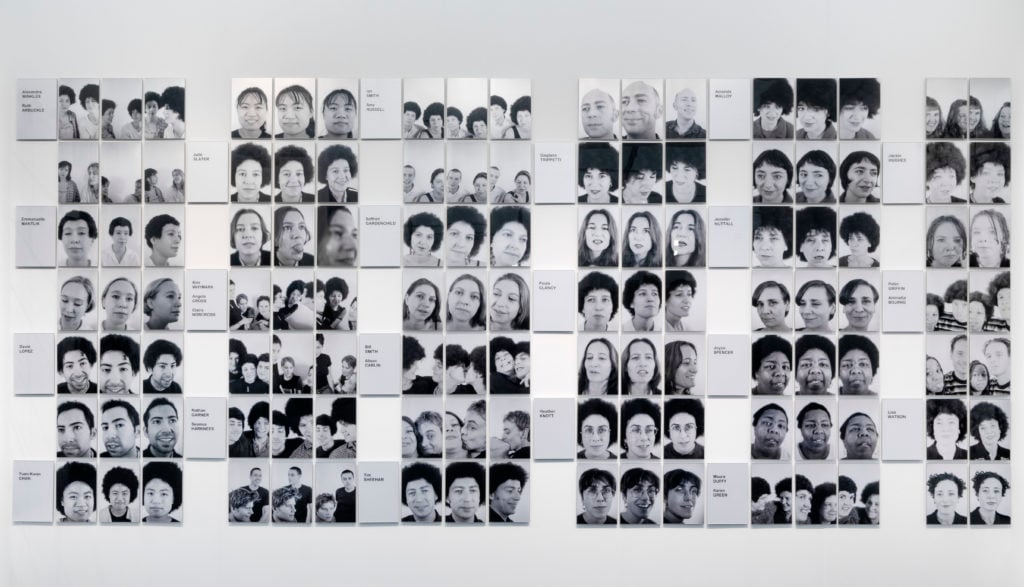
Sonia Boyce, The Audition (1997).
Tate acquired Boyce’s set of 400 black-and-white photographs The Audition (1997) from Apalazzogallery in the Social Work section of the fair. The work consists of photographs of members of the public trying on afro wigs from a studio in the cornerhouse art center (now called Home) in Manchester. “This is all a great surprise and delight,” Boyce, who was a prominent part of the Black Arts Movement in the 1980s, tells artnet News. “I don’t even know if I’ve got the right words. I feel very very proud. I’m just delighted.”
Tate has been interested in Boyce’s work for a while, the artist says. Her work, which traces the history of black artists and modernism, was recently the subject of a BBC documentary Whoever Heard of a Black Artist? She credits the attention to the legacy of “The Other Story,” the first retrospective exhibition of British African, Caribbean, and Asian modernism in 1989. “The legacy of that exhibition really has penetrated quite far and wide within British consciousness and the art establishment,” she says. “Tate for a while now has been acquiring a lot of works from that exhibition as well as trying to really reconfigure and rethink its relationship to what has been taking place here in the UK.”
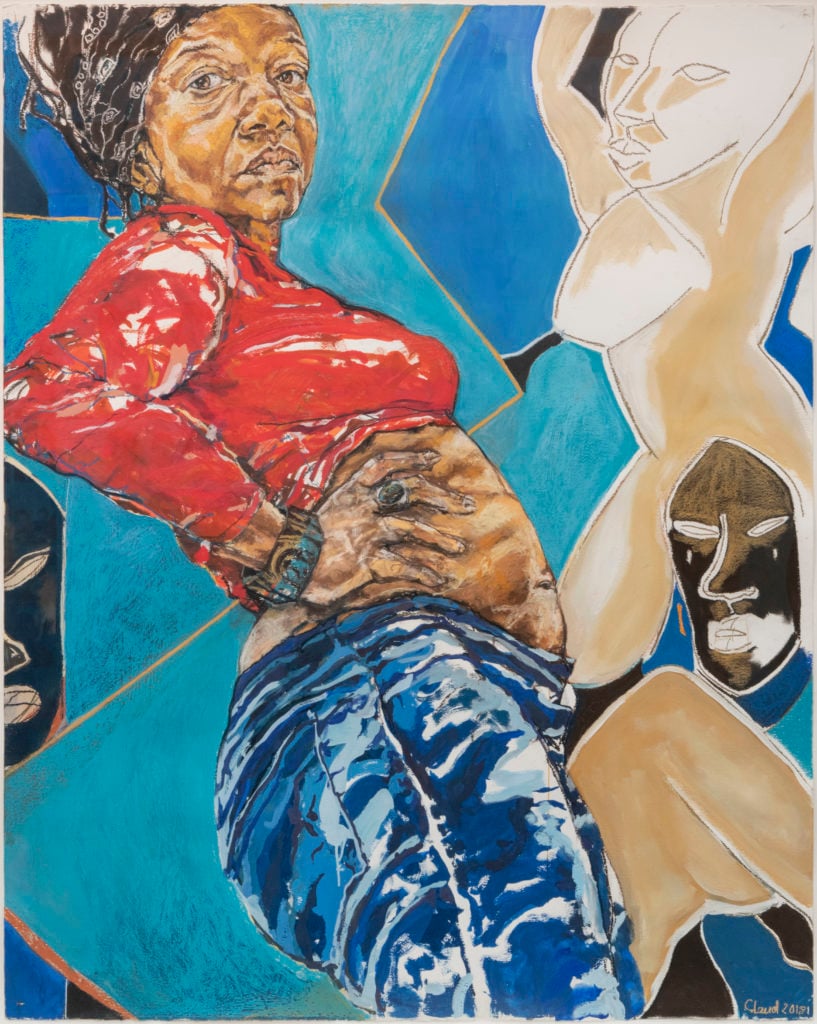
Claudette Johnson, Standing Figure with African Masks (2018).
Tate also acquired a work by Claudette Johnson, another British artist known for her drawings of black figures and her involvement with the BLK Art Group in the 1980s. Johnson’s pastel gouache on paper, Standing Figure with African Masks (2018), was picked up from Hollybush Gardens.
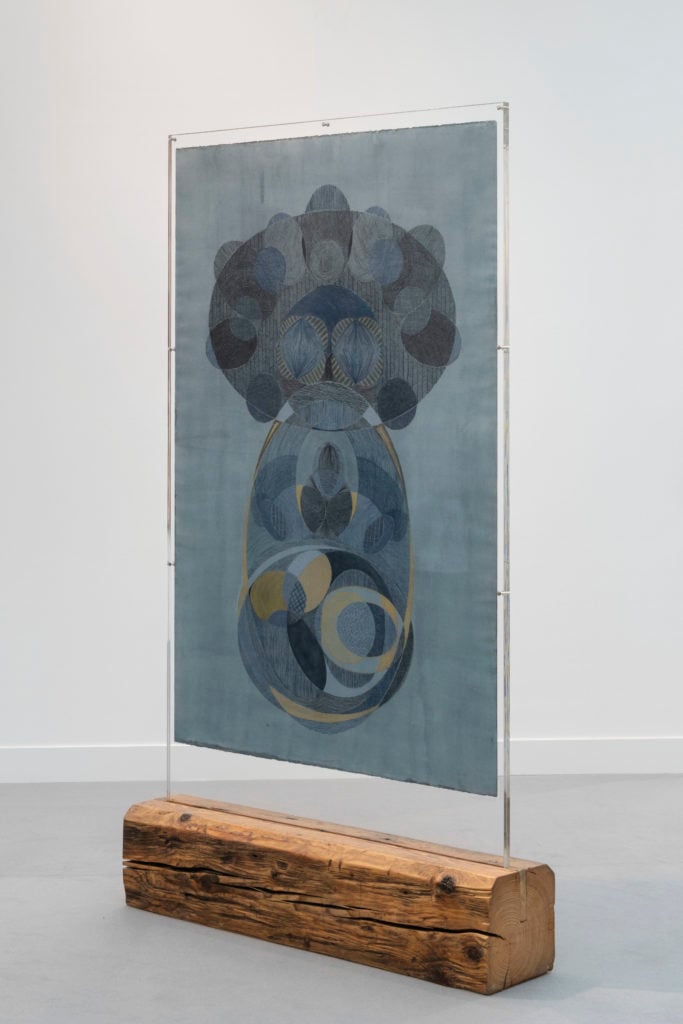
Johanna Unzueta, April, May 2016 NY (2016).
From the fair’s younger section, Focus, the museum nabbed a drawing by the young artist Johanna Unzueta, April, May 2016 NY (2016) from Proyectos Ultravioletas. The work, which uses indigenous craft techniques inspired by the Mapuche tribe in southern-central Chile, was shown in the 10th Berlin Biennale.
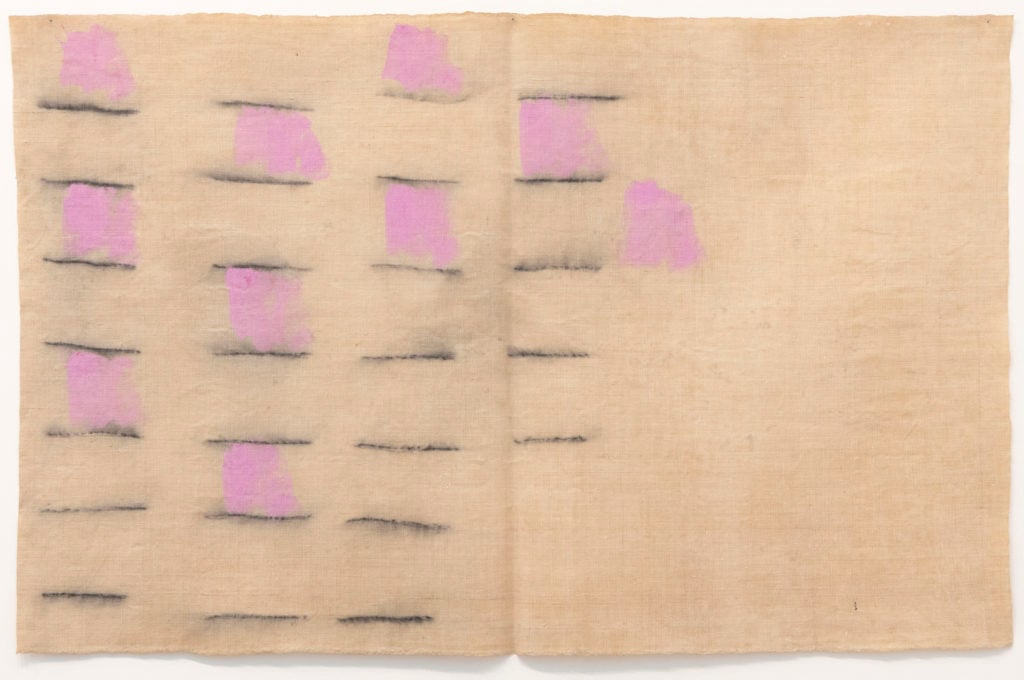
Giorgio Griffa, Rose e grigio (1969).
For its final acquisition, Tate selected Giorgio Griffa’s Rose e grigio (1969) from Galleria Lorcan O’Neill. It is the second work by Griffa in Tate’s collection, the other being from 1975.
Established in 2003, the Frieze Tate Fund was the first acquisition fund connected to an art fair. The 2018 fund is supported by the talent and event management company Endeavor for the third year running. In recent years the museum has been growing more adventurous with its acquisitions, last year buying provocative work by artists Hannah Black, Lawrence Abu Hamdan, Mary Beth Edelson, and Dorothy Iannone, all of whom entered the collection for the first time.